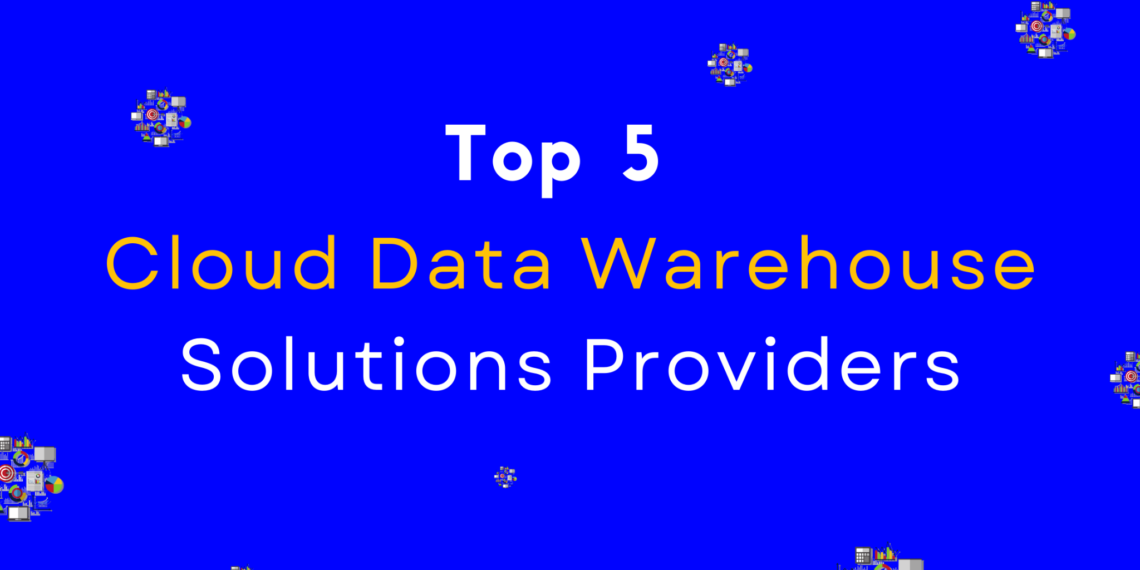The data warehousing technique centers on storing and retrieving data from many sources. It helps businesses avoid using numerous tools and manipulating data by hand, so you may streamline your operations to benefit your company. This makes it necessary for you to hire data architects who will help you with the job.
Businesses can choose between two types of data warehousing solutions, on-premises and cloud-based, and each has advantages. Cloud data warehouses, or CDWs, are becoming increasingly popular because the cloud provider handles the infrastructure and security, which means that end users pay much less.
Along with
- optimization(almost 100%),
- excellent security,
- and high performance,
cloud data warehouses offer incredible scaling and backup prospects to match your business demands – all without the hardware and migration expenses! This scalability ensures that your data warehouse can grow with your business, giving you confidence in the future. You may wonder what the best cloud data warehouse options are for 2024. Let’s examine this.
1. Provider 1: Amazon Redshift
Amazon Redshift is a cloud-based data warehouse for interactive analytics on big data sets. It uses the Hadoop infrastructure and is available as Apache Spark, an open-source version.
It is a data PaaS offering that individuals or organizations can use for operational duties like
- batch processing,
- data warehousing,
- data modeling,
- predictive analytics,
- and historical event analysis.
It offers storage space, processing power, and computation horsepower for statistics workloads. Businesses can use Amazon Redshift to analyze gigabytes of raw data from external sources, such as other organizations’ Hadoop setups, or from their databases.
It provides multiple database access options, such as a standalone SQL-on-Hadoop connector that enables direct access to cloud-stored datasets and direct command line access via SQLite.
Redshift, an AWS component, provides quick query speed even for big datasets. It also offers the well-known SQL-based capabilities that most users are accustomed to and a variety of cluster management choices to accommodate varying skill levels.
2. Provider 2: Google BigQuery
Google BigQuery stands out because of its distinctive handling of data warehouses. BigQuery is entirely serverless, unlike typical data warehouses that need to manage servers and infrastructure.
BigQuery is based on Google’s reliable cloud architecture and can easily handle petabytes of data.
By storing and analyzing semi-structured and unstructured data types like JSON, BigQuery enables you to obtain insights from various data sources. It also effortlessly combines with the machine learning tools offered by Google Cloud.
3. Provider 3: Snowflake
Snowflake is a cloud-based data warehousing solution known for its versatility, agility, and simplicity. It can be hosted on any cloud computing platform:
- Microsoft Azure,
- Google Cloud Platform (GCP),
- and Amazon Web Services (AWS).
It functions inside an extensive Software as a Service (SaaS) architecture.
One unique feature of Snowflake is its ‘Time Travel’ capability, which allows you to trace table and schema data changes for ninety days. During this period, you can restore a few objects of any version.
This data warehouse’s auto-scaling and auto-suspend features allow clusters to be dynamically altered, terminated or started automatically based on your business needs. Snowflake’s cloning functionality will enable you to easily create copies of files, schemas, and tables. Only the information is altered during object cloning; the storage content is not replicated.
4. Provider 4: Microsoft Azure Synapse Analytics
Azure Synapse is an analytics platform that integrates
- big data analytics,
- enterprise data storage,
- and data integration.
It is a component of the Microsoft Azure platform. While it differs from Azure SQL DB, it is comparable. Due to its distributed processing, Azure Synapse Analytics is scalable and ideal for data warehouse applications involving massive data tables.
It uses massive parallel processing (MPP), allowing users to for quickly and efficiently execute intricate, large-volume data searches over numerous nodes. It prioritizes privacy and data security.
However, compared to other data warehouses, it is more difficult to interface with non-Microsoft technologies despite being a fantastic option for companies utilizing Microsoft tools. Additionally, there may be some glitches because the service is updated frequently.
As a whole, Azure Synapse, instead of SQL BD, is intended for online analytical processing (OLAP), making it appropriate for quickly analyzing large datasets. Data consistency should be given priority over analytical availability. Choose Azure Synapse over Azure SQL DB if your warehouse’s data is at least 1TB.
5. Provider 5: IBM Db2 Warehouse
IBM Db2 Warehouse is an excellent choice for businesses managing analytics workloads that can use the platform’s integrated in-memory database engines and Apache Spark analytics engine.
IBM provides a pricing page where users may request a quote and estimate the cost. It also offers a free trial of IBM Db2 Warehouse. The Flex One Plan costs $1.23 for instance hours, $0.99 for VPC hours, and $850 for dedicated connectivity for each service endpoint.
Organizations seeking a data warehouse with a high-performance database may find significant advantages in IBM Db2 Warehouse’s integration of an in-memory, columnar database engine.
IBM’s Netezza technology, which offers sophisticated data lookup capabilities, is advantageous to Db2 Warehouse. Db2 Warehouse is also available as an on-premises solution for enterprises with hybrid cloud deployment requirements. Deployment can be completed in AWS or IBM cloud.
Conclusion
Most cloud-based data warehousing and automation solutions are pay-per-use options offering speed and high scalability. They facilitate faster query results, which enhances information access, and they let you analyze data to gain a more profound understanding.
When choosing from the many options available, consider
- pricing,
- data security,
- performance,
- and ease of use.
Data warehousing tools are essential to your company because they let you control workflow-driven data analysis operations. This post briefly summarizes your possibilities if you search for data warehouse cloud solutions with automation capabilities. It is important to remember that there is no ranking or order on the list.




















